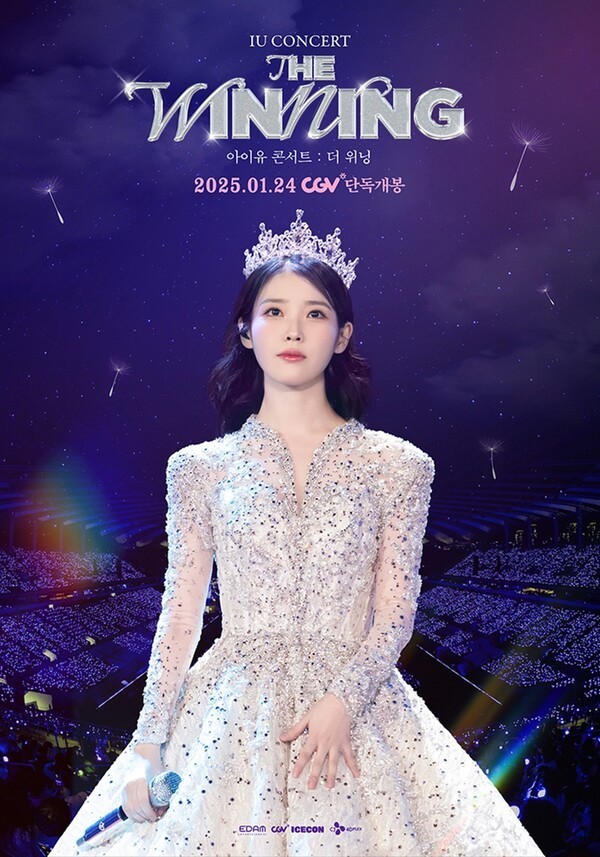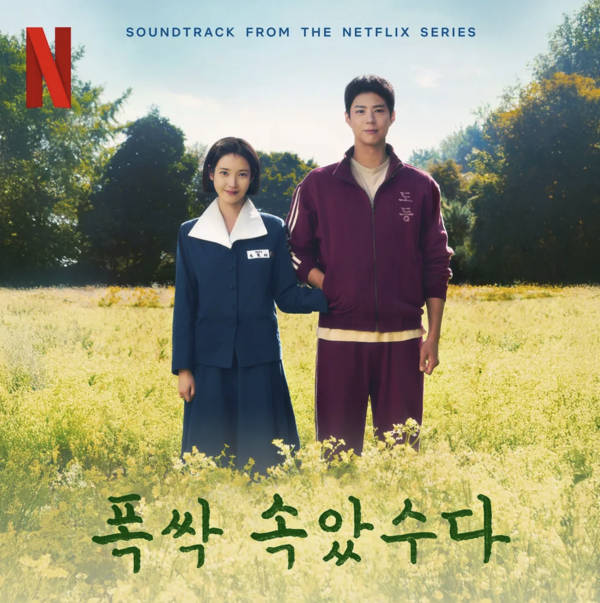Analyzing IU’s Narrative

Sometimes I want to sneak into a theater alone with a can of beer and watch a film in peace. Scrolling through the booking app one night, I suddenly spotted something unexpected—“IU Concert.” For years I’d heard that unless you were part of her fandom, UAENA, getting a ticket was nearly impossible, almost like winning a housing lottery in Gangnam. I had failed so many times in those ruthless 0.1-second battles against ticketing masters. But this time, though it was only a screening, I could finally experience the concert. Without hesitation, I booked a seat.
Late at night, surrounded by sparsely scattered strangers, I felt a slight self-consciousness. A man going to watch an IU film alone—was I embodying a stereotype? But when the lights dimmed, the screen lit up, and the “Red Sun” swept over the audience. Even though it wasn’t the real stage, it felt as if I were there in person. IU’s gaze pierced through the camera; each song unfolded like a carefully crafted narrative. Humming along in the dark, I recalled the Buddhist teaching “Everything is created by the mind.” This theater was no longer a cinema—it was a true concert hall.
IU’s music has never been just sentimental ballads. She always builds a “story,” inviting listeners to experience it. Modern Times summoned the jazz of the 1930s, connecting past and present. Chat-Shire was a bold dive into her own inner world. In Palette, she confessed the anxieties and growth of her twenties, declaring, “I now know my color.” With LILAC, she turned the page on youth, singing of beautiful goodbyes. Most recently, Love Wins All intertwined hope and despair into a haunting yet uplifting narrative.
What fascinates me is how her discography reads like a coming-of-age story. In Good Day, she hit those impossible high notes while shouting, “I don’t even know myself!” Today, she sings with a calm honesty, choosing clarity over spectacle. Growth is not merely about aging; it’s about authoring your own story, taking ownership of your choices.
Her acting career mirrors the same trajectory. In My Mister, she portrayed Ji-an, a young woman scarred by poverty and isolation, delivering raw, soul-piercing emotion. In the Cannes-invited film Broker, she took on the role of a single mother, exploring layered, conflicting emotions. And this year, Netflix’s When Life Gives You Tangerines (Bokssoak Sseogassuda) has redefined her acting journey once again. Set in 1950s Jeju, it follows a woman carving out her own path in an oppressive era. Many called it a daring challenge. Yet her delicate command of the Jeju dialect and ability to breathe life into the character silenced all doubts. The drama became a phenomenon, winning both ratings and critical acclaim, and solidifying once more: “IU is an actress.”
This success is not just about range—it proves IU has always designed her own narrative across music and acting. The characters she portrays confront reality’s shadows but never surrender hope. Behind the bright image of “Korea’s little sister,” she has never stopped acknowledging pain, struggle, and the weight of social context.
Here I can’t help but recall Charlotte Brontë’s Jane Eyre. Jane, an orphan raised in hardship, grows through education, preserves her dignity in love, and never lets fate dictate her path. She chooses her life as a subject, not an object. IU’s path is strikingly similar. She could have remained confined to the image of a national sweetheart. Instead, she dismantled that mold and built an artistic world of her own. From Palette’s defiant “I like myself,” to her steady pursuit of balance between public expectations and personal desire, she has continually claimed authorship over her life.

Now, IU’s narrative is shifting from growth to expansion. The triumph of When Life Gives You Tangerines is more than a hit drama—it shows her stories are gaining universality, resonating far beyond Korea. Looking ahead, IU may extend into new realms: writing scripts, directing, publishing essays, even experimenting with theater, musicals, or animation. She has already proven herself as a lyricist and composer; the next frontier may simply be a matter of when, not if.
Fans love her because she tells the truth. Critics attack her because sometimes that truth feels too perfect. But the real danger will not come from outside—it will come if she begins to lose authenticity while trying to please everyone. Yet, judging by her consistency and sincerity, I believe she will turn any challenge into the start of a new chapter.
If I could offer one piece of advice, it would be this: continue to design your story, but don’t fear imperfection. A person without shadows is uninteresting. It is in the interplay of light and shadow where the most enduring stories are born.
Seungho Shin, shshin@kmjournal.net
- [K-Star Column] ② Lee Soo-man, From KWANGYA to Physical AI
- President Lee Jae-myung Joins G-Dragon and Jang Wonyoung as “Parking Attendant” in 2025 APEC Promotional Video
- PLAVE Shares Heartwarming Chuseok Greetings: “Have a Wonderful Holiday, PLII~!”
- BTS’s RM to Deliver Keynote at APEC CEO Summit...Showcasing K-Culture’s Soft Power on the World Stage

![[동학] 카카오톡 친구탭, 결국 12월 롤백… “격자형 피드는 선택 옵션으로”](https://cdn.kmjournal.net/news/thumbnail/custom/20251126/5517_10550_1119_1763853080_120.jpg)


![[테크 칼럼] 제미나이3, GPT-5.1을 넘다…AI는 이제 ‘일을 대신하는 시대’로 간다](https://cdn.kmjournal.net/news/thumbnail/custom/20251126/5457_10454_4847_1763621329_120.jpg)





